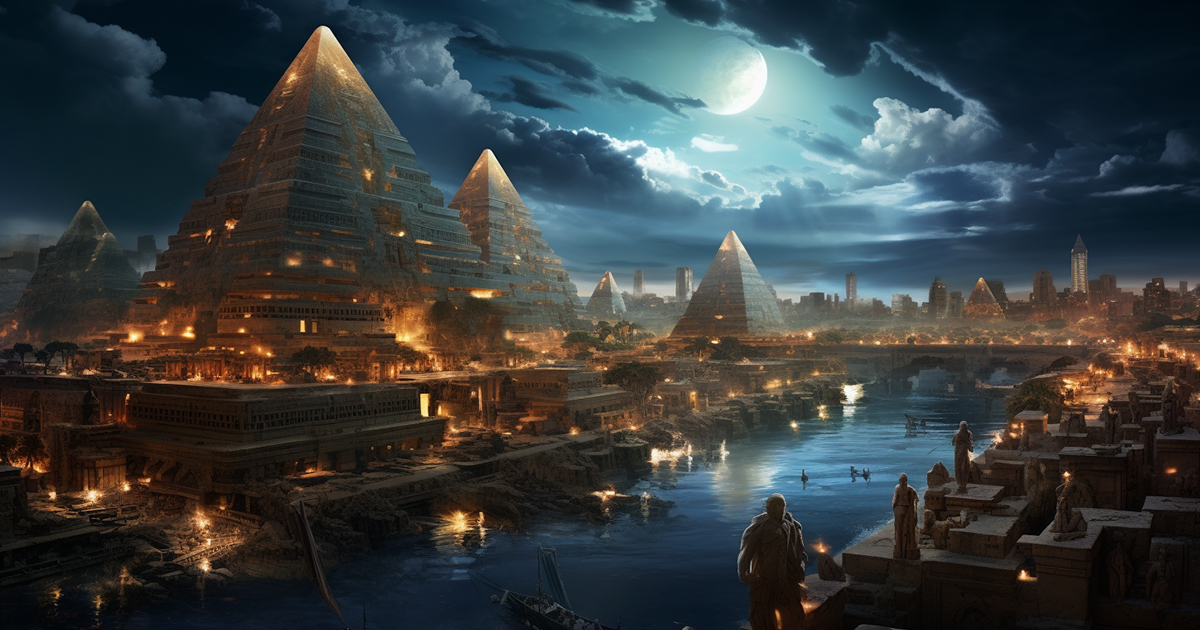The Genesis
The ancient past has always been a source of fascination for mankind. Whether it’s the majestic Great Pyramids or the mysterious Nazca Lines, historical enigmas have puzzled researchers and historians for generations. Contemplating the evidence and biblical hints pointing towards a forgotten prehistoric civilization that may have thrived on Earth eons before our documented history, a captivating enigma unfolds.
The Fading Traces of Yore
Scholars have pondered on the possibility of uncovering ancient civilizations dating back tens of millennia. Upon exploring this topic, the resounding answer seems to be “no.” The gradual erosion and destruction of any evidence of such ancient societies over time have rendered their existence nearly undetectable. Renowned scientist Michael Dennin underscores the brevity of our current technological civilization in the grand scheme of geological time. If our civilization were to vanish abruptly today, it might leave behind minuscule traces, if any, for posterity. This realization challenges our assumptions about the durability of human accomplishments.

Legends of Old and Myths of Yore
Mainstream archaeology places the emergence of the earliest known civilizations around 3000 BC in what is now modern-day Iraq. Yet, oral traditions, ancient myths, and historical records from diverse cultures worldwide weave a different narrative, one that predates these established civilizations. It speaks of a time when humans supposedly coexisted with divine entities, often regarded as gods.
These tales often recount an age “before the before,” a time when gods and humans trod the Earth together. In Greek mythology, Hesiod introduced the concept of five ages of man, with the Golden Age symbolizing harmony and coexistence with divine beings. Hesiod viewed this epoch as historical truth rather than mere myth. Similar cyclical age concepts can be found in other cultures, such as the Aztecs.
Clues in Scriptures about Pre-Adamic Civilizations
Curiously, biblical texts also allude to pre-Adamic civilizations. In the Book of Genesis, Chapter 36, a peculiar genealogy mentions kings reigning in the land of Edom before the establishment of an Israelite monarchy, hinting at advanced civilizations predating Adam.
Additionally, Enochian literature shares tales of highly advanced societies allegedly possessing futuristic technologies, including what we would now recognize as nuclear capabilities. The accumulation of evidence from diverse traditions and cultures suggests the plausibility of advanced civilizations from earlier times fading into the recesses of history.
An Enigmatic Lost Civilization?
The lingering question revolves around the possibility of multiple advanced civilizations flourishing and declining on Earth, each eventually succumbing to the sands of time. Giorgio Tsoukalos challenges the conventional notion of gods as mere figments of human imagination, proposing that these divine figures were extraterrestrial beings imparting wisdom to humanity.
As we delve into the intricate web of ancient myths, biblical hints, and intriguing cues from various traditions, the idea of a lost prehistoric civilization gains credibility. The enduring narratives of gods, advanced knowledge, and pre-Adamic societies transcend cultures and epochs, urging us to unravel the mysteries veiled within our distant past.
Visual Insight:
Closing Thoughts
The whispers of evidence and biblical hints pointing towards a lost prehistoric civilization continue to ignite curiosity and fascination among researchers and history aficionados. While tangible proof may remain elusive, the persistent legends of gods, advanced technology, and pre-Adamic societies in various cultures and sacred texts propel us towards exploring the likelihood of multiple advanced civilizations gracing our planet, their legacies slowly fading from historical records. As we contemplate these enigmas, the allure of uncovering the secrets of our ancient past remains as potent as ever.
